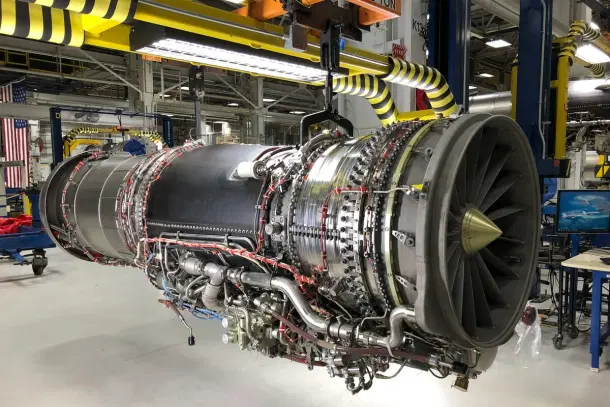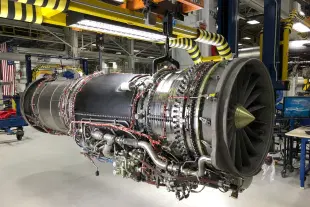Defence
India’s Jet Engine Push: HAL-GE Talks For Tejas Mk2 Near Closure, DRDO-Safran To Collaborate For AMCA
Swarajya Staff
Aug 24, 2025, 10:17 AM | Updated 11:01 AM IST
Save & read from anywhere!
Bookmark stories for easy access on any device or the Swarajya app.


Two years after Hindustan Aeronautics Limited (HAL) and US defence major General Electric (GE) Aerospace signed a pact to co-produce fighter jet engines, the two sides are set to begin commercial negotiations on the deal shortly, The Indian Express has reported.
The discussions are expected to conclude within the next three months, with the aim of finalising an agreement to manufacture F414 engines in India for the Light Combat Aircraft (LCA) Mk2 programme.
The pact between HAL and GE was first announced in June 2023 during Prime Minister Narendra Modi’s state visit to the United States.
Following approval from the US Congress in August that year, the final deal was expected soon after.
However, negotiations have stretched over two years.
According to the report, GE has agreed to transfer 80 per cent of its engine technology to India, a significant increase from the 58 per cent offered in 2012, though certain critical components remain excluded.
The technologies on offer include advanced coatings and machining processes for turbine blades, nozzle guide vanes, and other high-temperature parts.
Alongside the HAL-GE discussions, the Defence Research and Development Organisation (DRDO) has finalised French aerospace major Safran as a partner for developing an advanced jet engine in India, The Indian Express noted.
The Bengaluru-based Gas Turbine Research Establishment will work with Safran on the project, which is intended to power the indigenous fifth-generation Advanced Medium Combat Aircraft (AMCA).
The DRDO is preparing to approach the Cabinet Committee on Security to secure approval for the programme, which will include full technology transfer.
Defence Minister Rajnath Singh also mentioned the Safran decision at the Economic Times World Leaders Forum.
In his Independence Day address on 15 August, Prime Minister Modi had urged Indian scientists, engineers, and innovators to develop fighter jet engines indigenously, comparing the effort to India’s success in building Covid-19 vaccines and digital payment infrastructure.
India’s efforts to develop combat jet engines indigenously have so far not succeeded, as only a handful of countries have mastered the complex technology and metallurgy involved.
The HAL-GE pact, therefore, is seen as a landmark, though delays risk affecting timelines for the LCA Mk2 project, a key element in strengthening the Indian Air Force’s fighter fleet.
Please click here to add Swarajya as your preferred and trusted news source on Google.





